Media Release
Mangaluru, Sep 22: In this ever-enduring field of education it is imperative that the staff shoulder the responsibility of enhancing their skills, sharing best practices and working together towards excellence in teaching- all of it in accordance with the Jesuit educational principles. Aimed at equipping the Staff with methods and techniques that would align them in the path of Ignatian spirituality and pedagogy, a one-day enrichment programme was conducted at St Aloysius Pre-University College.
Fr Fredrick D’Silva SJ spoke on the fundamentals of Ignatian spirituality and the transformative potential of Jesuit education. Fr Fredrick D'Silva centered his talk around six key principles—referred to as the six C’s of Ignatian Spirituality. These are foundational concepts that reflect the spirit of St Ignatius of Loyola and the mission of Jesuit education. The six C’s – conversion, companionship, commitment, co-discernment, consolation and compassion- offer a spiritual framework for educators to reflect on their roles—not just as teachers, but as companions and mentors committed to the holistic growth of every student. The session was both enlightening and enriching, offering a meaningful exploration of the spiritual foundation upon which Jesuit education is built. It served as a valuable reminder of the deeper mission of education-forming individuals who are intellectually competent, morally grounded, and spiritually aware.
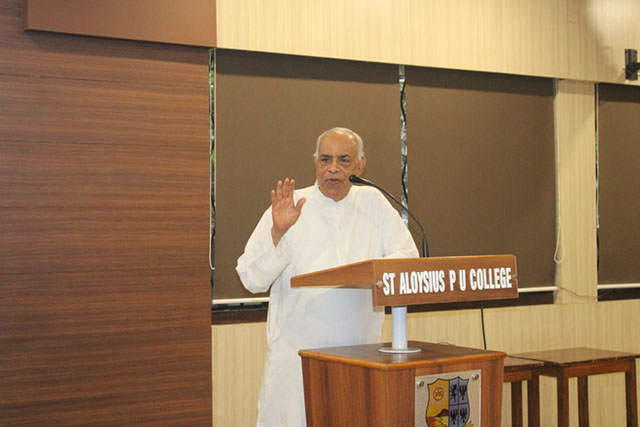
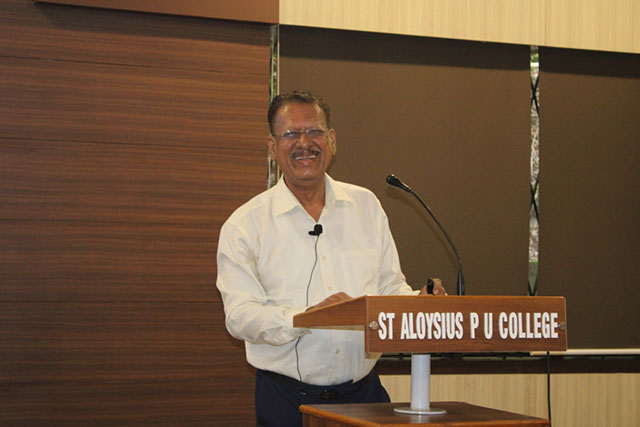
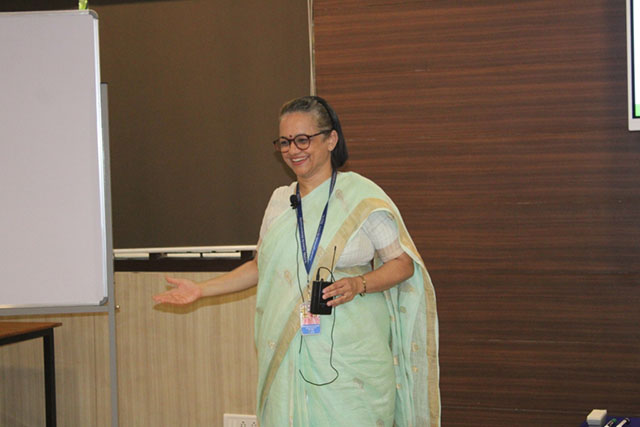
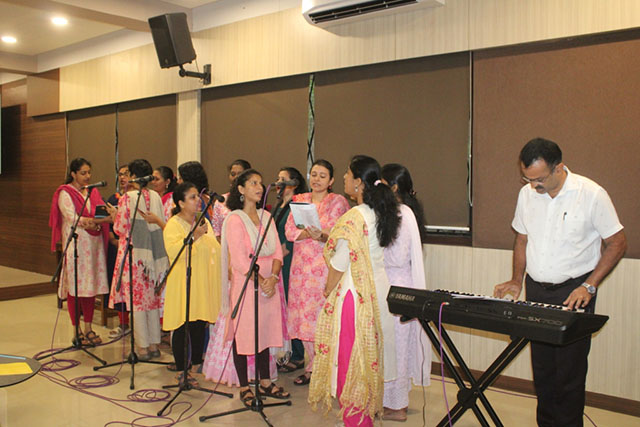
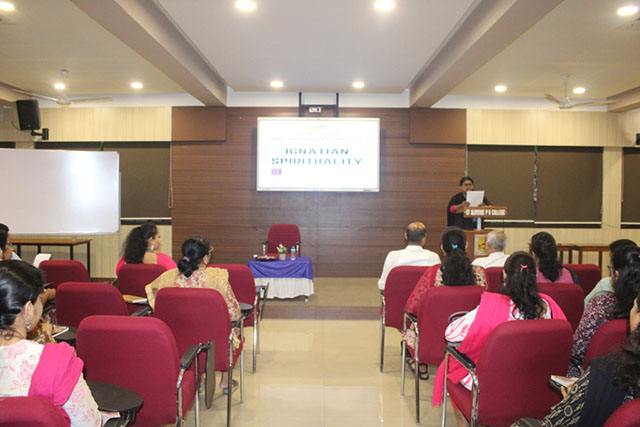
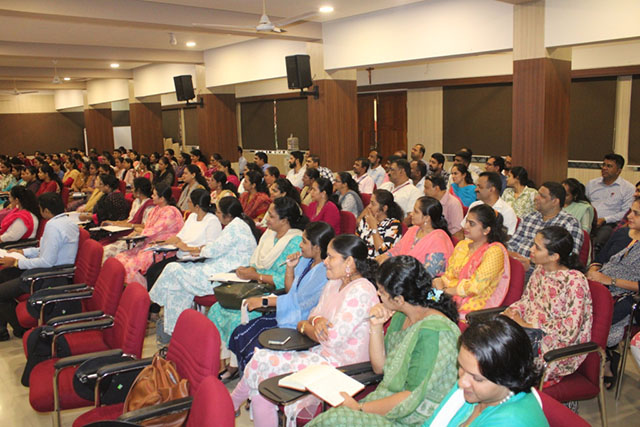
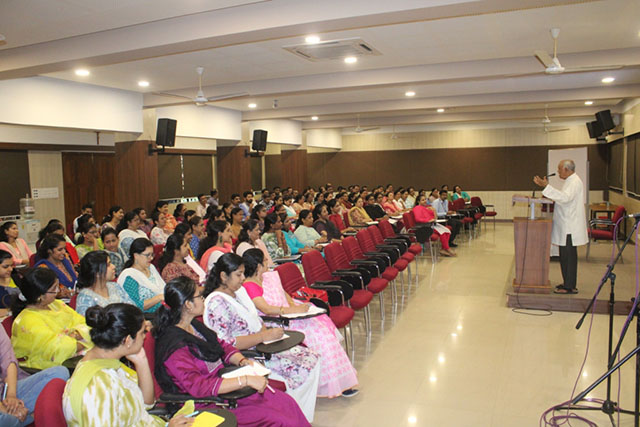
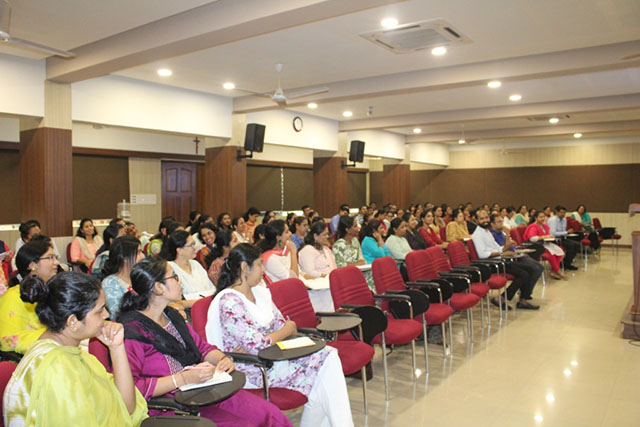
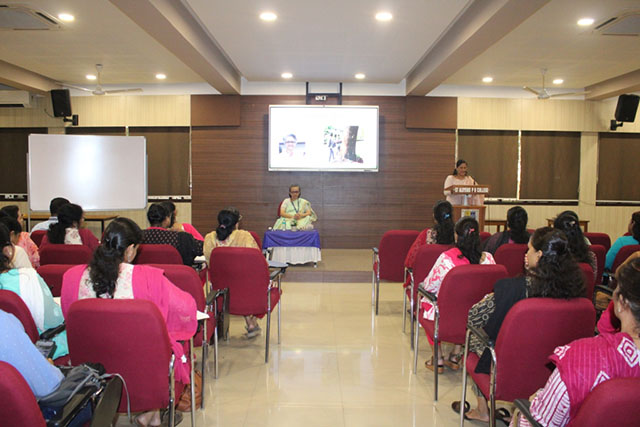
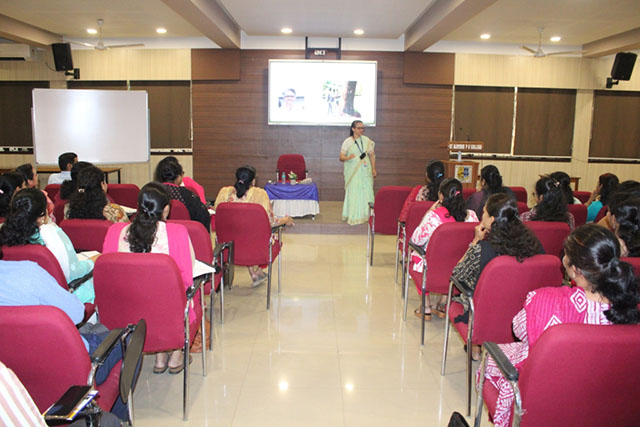
The session on Nonviolent Communication (NVC), conducted by Dr Denis Rodrigues, a practicing trainer, counsellor and therapist, focused on the principles and practice of NVC, an approach to communication that emphasizes empathy, honesty, and mutual respect. Dr Rodrigues explained that NVC is based on four main components, namely observation, feelings, needs and requests.
By learning to observe without judgment, express feelings honestly, understand underlying needs, and make respectful requests, individuals can greatly improve the quality of their interactions and relationships. NVC is not just a communication tool, but a way of thinking and being that promotes peace, understanding, and empathy. The staff learned the value of self-awareness and active listening in maintaining nonviolent communication, especially in emotionally charged situations.
To build an eco-friendly community aiming towards sustainable development, a session was arranged on the topic ‘Campus sustainability-building green institutions’. Dr Smitha Hegde, winner of the ‘AranyaMitra’ award by Karnataka Forest department for her environmental conservation efforts, was the keynote speaker. She spoke on how institutions today have to align with 17 sustainable development goals adopted by United Nations. Dr Hegde shared her experience of being the part of different conservation activities like project AMARA, tree count in Mangalore city, different plantation drives. Dr Hegde presented alarming facts on how we are rapidly losing the urban biodiversity and green cover, contaminating water sources and moving towards an uninhabitable environment. She hoped small and repetitive measures by every individual can bring in success to some extent in conserving the environment.
In his address, the principal Fr Clifford Sequeira SJ spoke on the management goals and the guidelines laid by the Province Commission of Secondary Education. He urged the staff to take active part in implementing the Apostolic preferences of the province.
The campus minister, Fr Anthony Derrick SJ introduced the eco task force at SAPUC and presented the action plan to implement the Jesuit Province Apostolic Preference of ‘Caring for the Common Home’ and to create a sustainable environment at SAPUC and beyond.
The programme introduced the staff to many new ideas and techniques that they can carry out and become more effective in their mission of forming men and women who empower themselves with the skills and ethics that will make them global citizens who take care of themselves, their fellow beings, the environment and the world at large.